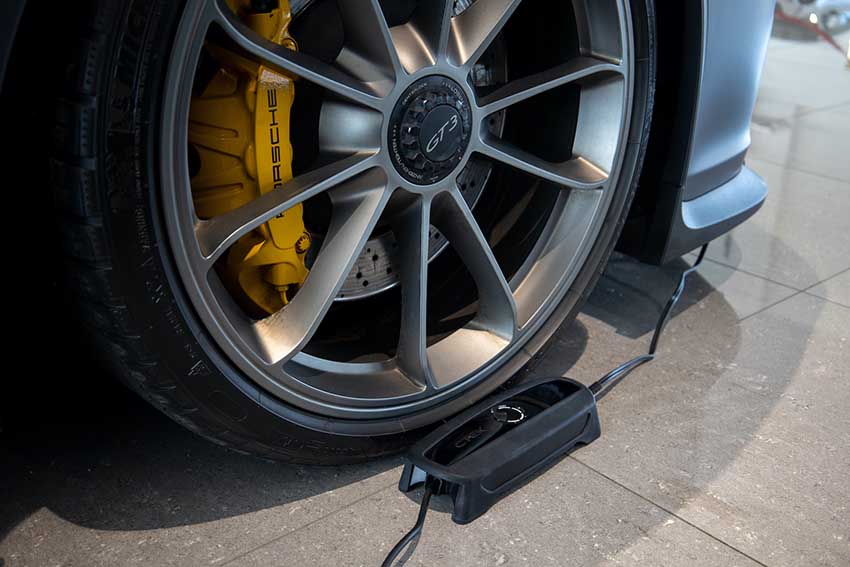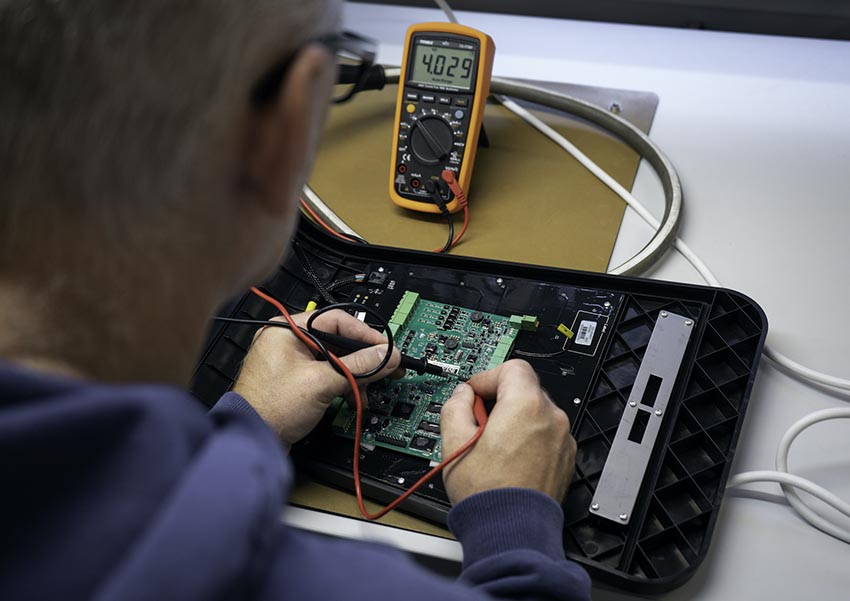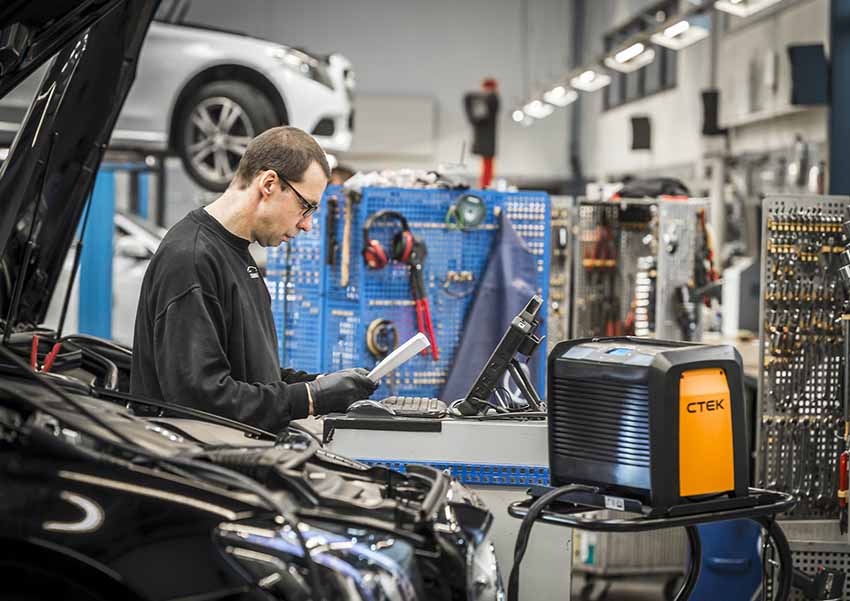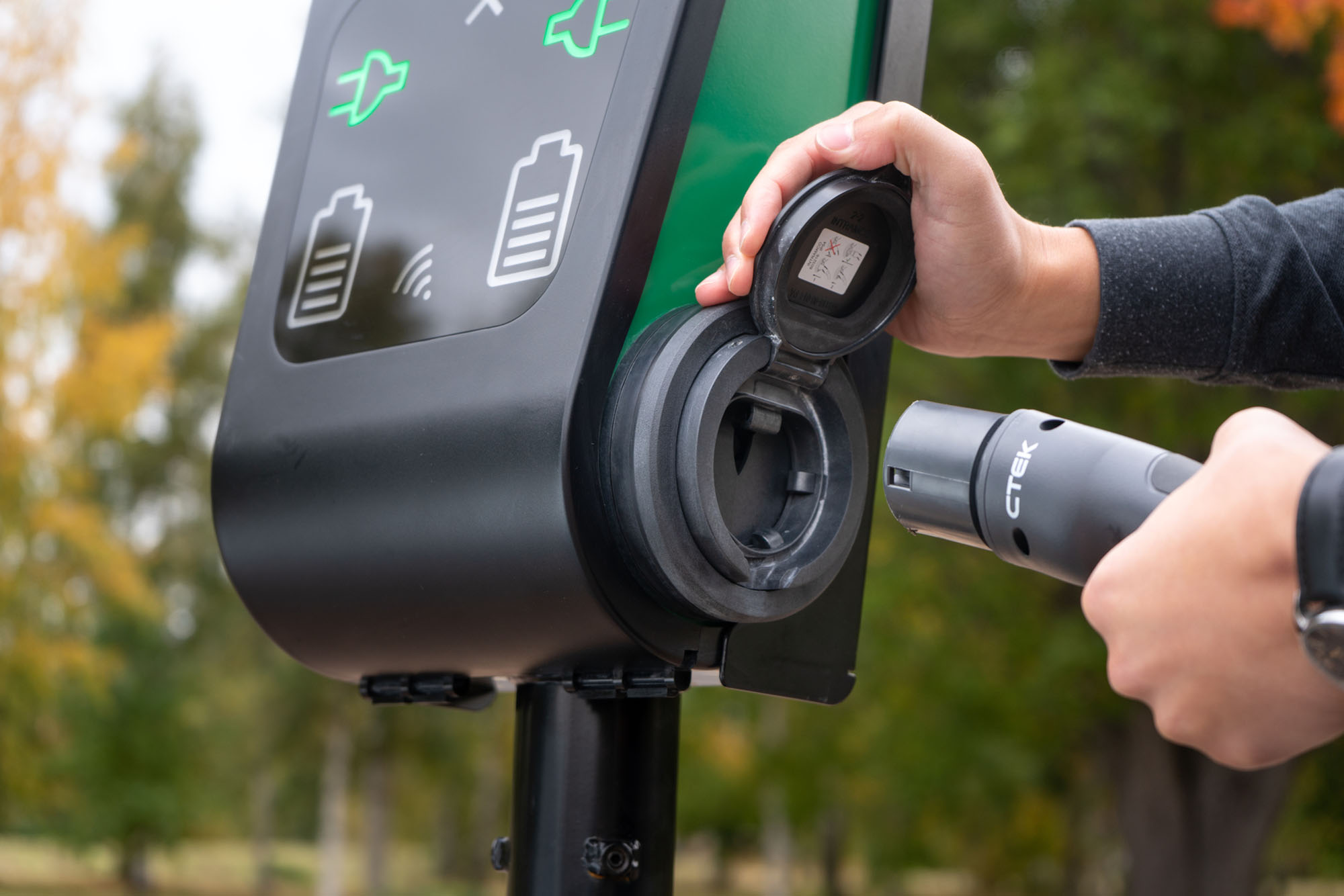Established in Dalarna, Sweden, CTEK is the leading global brand in vehicle charging solutions. The company recently celebrated its 25th anniversary and has a reputation for being first to market with new products.
CTEK products are sold via a carefully selected network of global distributors and retailers: as original equipment; supplied to more than 50 of the world’s leading vehicle manufacturers; and through charge point operators, property owners and other organisations/individuals providing EV charging infrastructure.
Interview with Cecilia Routledge, Global Director – Energy & Facilities at CTEK.
Easy Engineering: What are the main areas of activity of the company?
Cecilia Routledge: CTEK is the global market leader in battery charging and maintenance solutions. Our aftermarket solutions range from 12V and 24V portable battery chargers to complete charging solutions for electric vehicles.
Our E-mobility solutions range from individual EV chargers to larger corporate and commercial installations with multiple charging stations, with the latest smart technology and load balancing capabilities which integrate seamlessly with monitoring and payment equipment.
E.E: What’s the news about new products?
C.R: We are constantly investing in R&D, and our dedicated EV Centre of Excellence near Stockholm plays a critical role in the innovation process, so we are always working on new products to meet the latest industry challenges.

E.E: What are the ranges of products?
C.R: Our E-mobility solutions range from individual EV chargers to larger corporate and commercial installations with multiple charging stations, with the latest smart technology and load balancing capabilities which integrate seamlessly with monitoring and payment equipment.
CTEK also provides a range of revolutionary products and solutions for 12V and 24V batteries, including the PRO range of professional workshop chargers; the CS ONE, which remains the only battery charger in the world driven by CTEK’s revolutionary APTO™ (Adaptive Charging) technology; and the CS FREE, the world’s first multi-functional portable battery charger and smart maintainer with adaptive boost technology.
E.E: At what stage is the market where you are currently active?
C.R: The 12V and 24V battery charger market is well established – CTEK sells more than a million changers each year – and it also continues to have growth potential through product innovation and consumer education of the value in ongoing battery maintenance and optimisation.
The electric vehicle (EV) market is booming. There are now 16.3 million EVs in the world, triple the amount in 2018, and global sales of EVs kept rising strongly in 2022 (Source: IEA.org).
E.E: What can you tell us about market trends?
C.R: The EU has more than 330,000 publicly accessible charging points, and that number is growing. However, deployment is uneven. Germany, France and the Netherlands count for 69% of all charging points across the EU, while 10 European countries do not have a single charger per 100 km of road.

The European Commission has a target of 1 million charge points by 2025, and it is estimated that roughly 150,000 new points would be needed each year – almost 3,000 a week – to close the gap.
A YouGov survey recently conducted on behalf of CTEK also reveals that traditional barriers to EV ownership, such as concern over driving range and availability of out-of-home charging, is reducing.
The expanded EV charging infrastructure is encouraging increased EV ownership, particularly amongst drivers with nowhere to install a home charger, and this signals the start of mass market adoption, where there will be less reliance on domestic charging, and reduced range and charger anxiety overall.
E.E: What are the most innovative products marketed?
C.R: CHARGESTORM® CONNECTED 2 (CC2) is one of few available with a dual socket, so two vehicles can charge from the same unit, at the same time. It can be wall or pole mounted, and CTEK also offers a 4-socket solution where two dual-socket CC2s can be mounted back-to-back to charge four vehicles simultaneously. CC2 has been developed in response to customer and installer demand for a smart, reliable, EV charging solution for dual and multiple vehicles, that saves on space and makes installation easier.
CTEK’s GRID CENTRAL (CGC) 500 is the only truly dynamic load balancing system on the market. It prevents system overload, balances demand on the grid and, uniquely, regulates power between EV chargers and anything else drawing power from the grid, on a real time basis. CGC can support up to 500 charging outlets on a single network. Several CGC units have recently been installed in the Norra Stationsparken 100% EV parking facility in Sweden, which, with more than 1,000 EV charging outlets, is one of the largest EV installations in any parking facility in Europe.
CTEK also has two award winning products available for 12V and 24V batteries. The CS FREE offers four cutting edge products in one portable unit – adaptive booster, battery charger, smart maintainer and hi-tech power bank. And the CS ONE is the only battery charger in the world driven by revolutionary APTO™ (Adaptive Charging) technology, giving your car battery exactly the type of charge, it needs – quickly, simply, safely and with true style.

Cecilia Routledge, Global Director – Energy & Facilities at CTEK.
E.E: What estimations do you have for 2023?
C.R: Cost of living
With the global rising cost of living, consumers are increasingly needing to balance the wish to reduce their carbon footprint against the need to make household budgets stretch that little bit further.
Financial considerations are therefore becoming increasingly important for drivers making the switch to electric motoring which, with road travel accounting for close to a third of global greenhouse gas emissions, is a vital component in the transition to a fossil-free society.
A recent YouGov survey conducted for CTEK reveals that lower running costs are now the main reason for purchasing an EV, with more than a third (34%) of European EV owners giving this reason, followed by 25% citing environmental benefits.
Given this, EV drivers will be encouraged to know that, despite escalating global electricity prices, driving an EV is still more economical than filling up with petrol and diesel.
E-roaming
For 2023, there needs to be increased focus on developing the interactive technologies required to build a cohesive, secure charging network that provides ease of access, ease of use and ease of payment for the growing number of EV drivers.
There needs to be an industry and Europe-wide commitment to rolling out e-roaming, which would give EV drivers better access to charging stations, in the same way that mobile phone users can simply access different networks as they travel around the globe.
The technology for e-roaming is already in place, with Open Charge Point Interface (OCPI) protocol allowing the hardware at charging stations to communicate with the software that manages roaming.
So now we wait for charge point operators across Europe to take the next step.
The EU Alternative Fuels Infrastructure Directive (2014/94), adopted in October 2022 and to be fully implemented by 2027, requires that EV drivers should be able to choose which app they want to use to stop, charge and pay at any charging station across the EU.
As well as making things easier for consumers, e-roaming offers the possibility to harmonise prices, so charge point operators don’t charge more when you’re travelling than you pay with your home subscription. This too is likely to need legislation at EU level.

Fintech needed to streamline EV charging and payment
EV drivers currently need to carry a wallet full of payment cards, numerous apps and RFID tags to access different operators’ networks and pay for their charge.
Collaboration is needed with companies in the worlds of finance and technology to develop a solution to this. And while this may seem trivial, the easier it is to use a service, the more likely it is that customers will have a positive buying behaviour.
This is where Vourity, among others, is an interesting player in the integration of payment solutions. Imagine when anyone, regardless of car brand, can plug in their car, the car automatically identifies itself and the charging cost is deducted directly from the driver’s credit or debit card. Plug & Charge has the potential to fundamentally change the playing field for EV charging.

